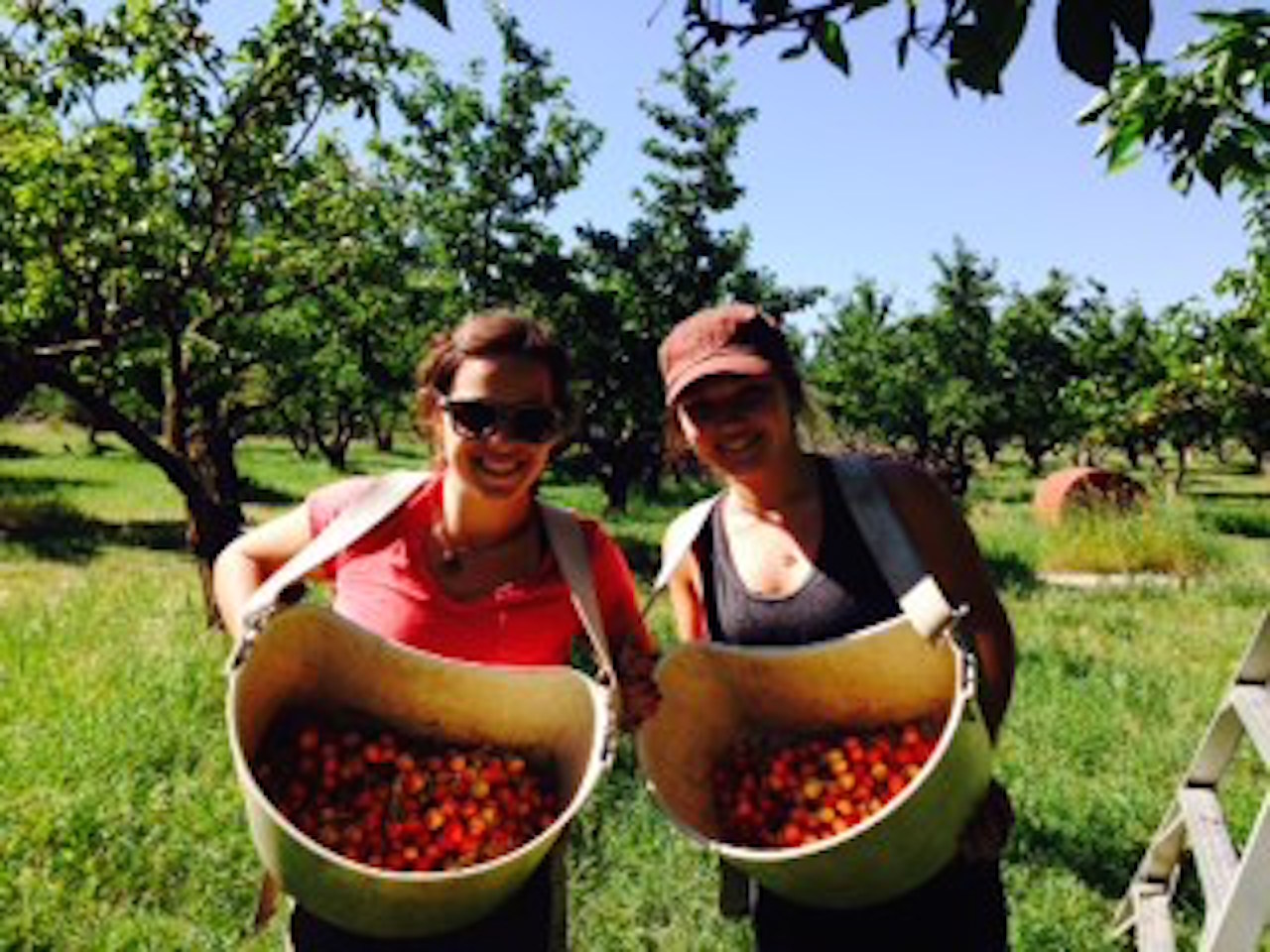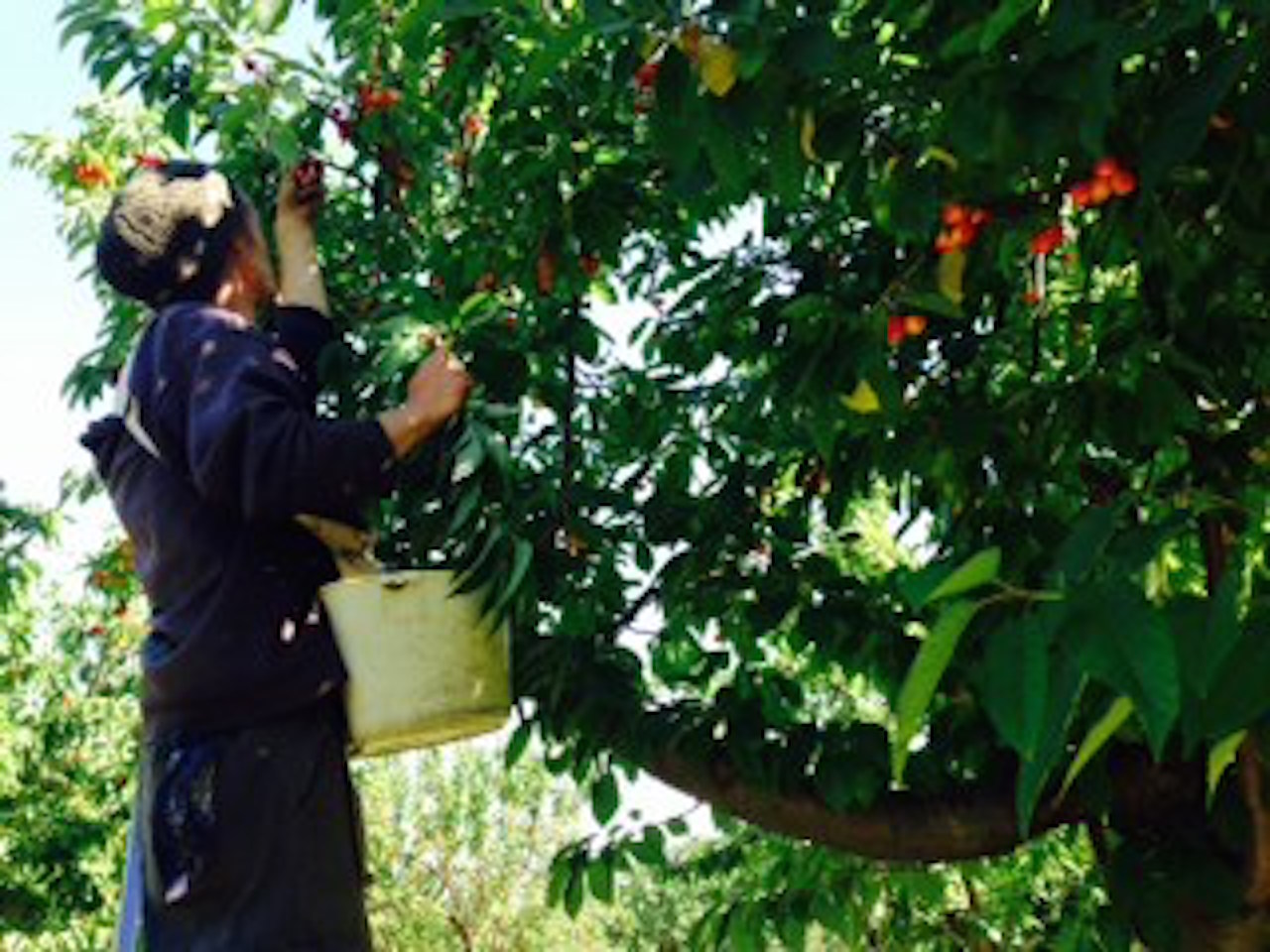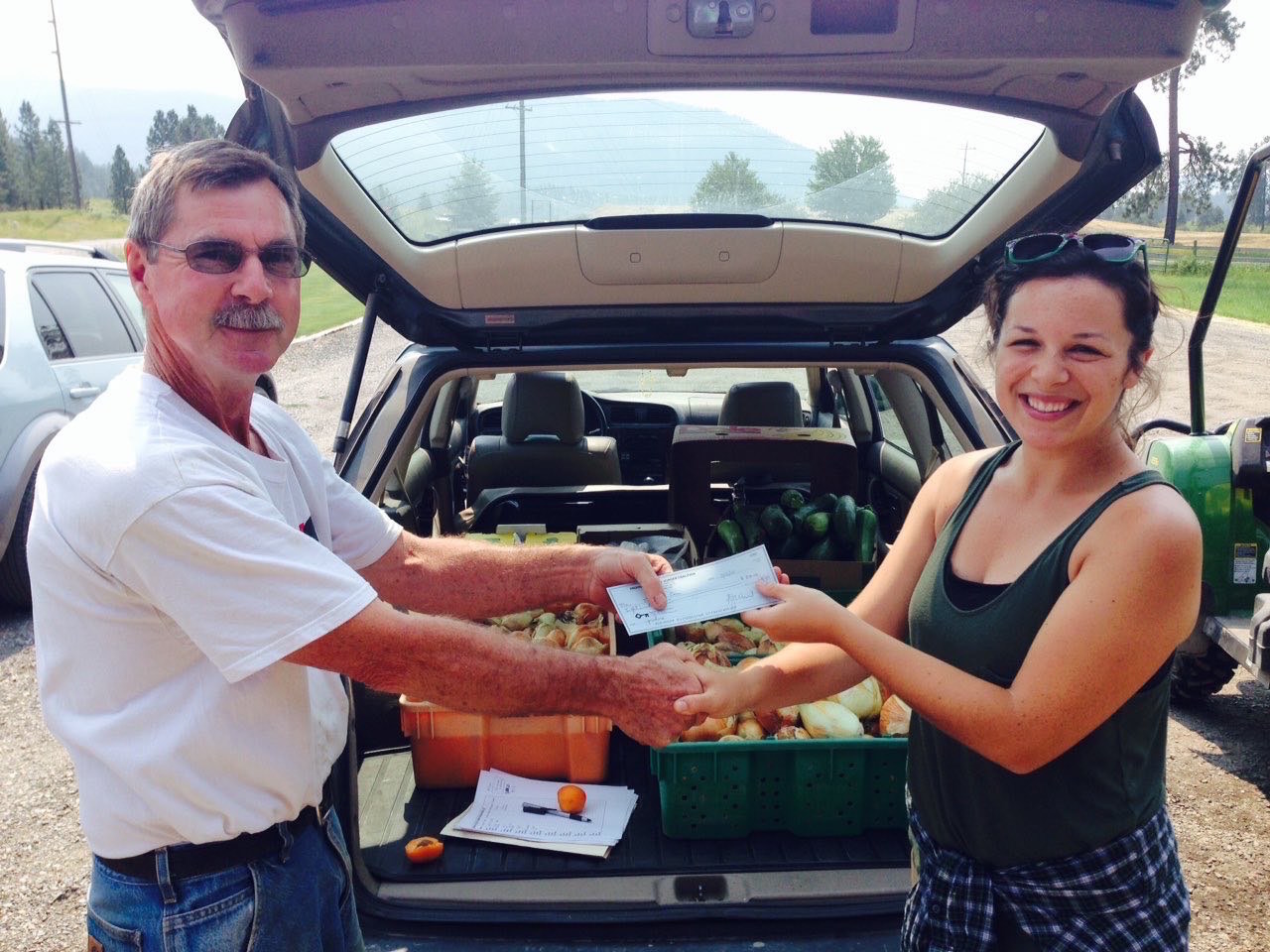
Key points
Before committing to gleaning or purchasing from any orchard (commercial or residential) consider:
o Height of the trees
o Condition of the ladders
o Quality of fruit
o Amount of volunteer labor required (Cherries take far more time than apples to harvest)
Commercial orchards in the process of downsizing are a great gleaning opportunity but an ultimately unsustainable and unreliable source for bringing fresh produce to food pantries.
Building relationships and letting orchardists know you’ll take slightly blemished, misshapen, or irregular fruit when it’s still perfectly edible is an effective method for creating purchasing, gleaning, and donation opportunities in the long-term.
Having quality volunteers requires an established incentive structure for gleaning events (i.e. volunteers need to know they will be allowed to take home a certain percentage of their harvest ahead of the event).
Our Experience
Orchards in Stevens County are mostly small organic family run operations. Many of the couples running these orchards are reaching retirement age and tiring of the intense labor required to maintain orchards. Many of these orchards sell from their own property or send their produce to Spokane and Seattle where prices are higher. There is currently only one orchardist that sells his peaches at the local farmers market. The opportunity for partnering with these growers is strong, but many are hesitant about gleaning and do not want to just give away the produce they put the money and labor into harvesting.
2014
In 2014, the Harvest Against Hunger program purchased from two orchards: Rickey Creek Orchard for 1,000 pounds of cherries and Cliffside Orchard for 933 pounds of pears. The conditions last season were perfect for partnering with these orchard growers because they were overwhelmed by the crop, some did not have the resources to harvest everything or market their produce and seconds were in plenty. The challenge that arose from such a tall order of fruit was finding the skilled volunteers to harvest it all.
Rickey Creek Orchard
The conditions of the contract with Rickey Creek Orchard required that the program pick all 1,000 pounds of cherries. This is not a task to be underestimated, and with the harvest program in its beginning stages, the number of volunteers needed and time required to pick all 1,000 pounds was daunting. Additionally, many of the trees required 12-14 foot ladders, which put volunteers at greater risk.

Cliffside Orchard
Early in the season Cliffside experienced a hail storm that damaged over 80% of their crop. Although the pears were still delicious and perfectly edible, they had some spots that did not allow the orchard growers to sell them at market. Purchasing even a portion of these seconds gave this orchard an opportunity to sell a product that would have been difficult to sell in their usual form of marketing. This orchard preferred not to have volunteers picking on their property, as did the majority of orchards in the area.

2015
Alas, the opportunity for gleaning and purchasing from orchards is completely dependent on what the year will bring and it fluctuates dramatically. 2015 proved to be a more difficult year for partnering with orchardists as the trend toward retirement and downsizing continued. This season was also not quite as productive for tree fruit. On a smaller scale though, a few cherry gleaning events were held at the beginning of the summer. With a more flexible contracting timeline, more orchards would have been able to participate in the Farm to Food Pantry program this season.

